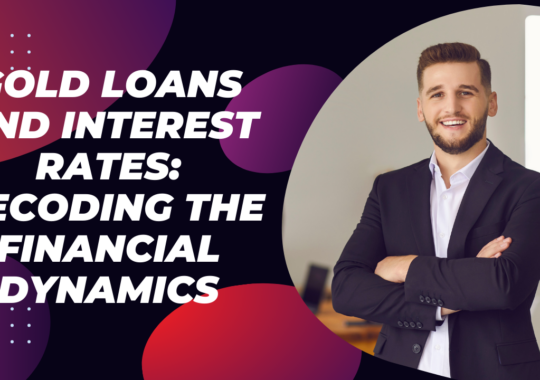Understanding the differences between personal loans and credit card loans is essential in making informed borrowing decisions. Personal loans offer fixed interest rates, predictable monthly payments, and flexibility in usage, making them suitable for planned expenses. On the other hand, credit card loans provide immediate cash access but often come with higher interest rates and fees, making them more suitable for emergency or short-term needs. Borrowers should carefully evaluate their financial situation, needs, and repayment ability to determine which option aligns best with their specific circumstances.
Understanding Personal Loans:
- Definition of Personal Loans:
- Introduction to personal loans as unsecured loans provided by banks, credit unions, or online lenders.
- Emphasize that personal loans are typically used for various purposes, such as debt consolidation, home improvement, medical expenses, or other major purchases.
- Fixed Interest Rates and Monthly Payments:
- Explanation of how personal loans usually come with fixed interest rates, ensuring consistent monthly payments throughout the loan term.
- Loan Terms and Amounts:
- Overview of common loan terms, such as 12 months, 24 months, or longer.
- Mention the typical loan amount range, which can vary depending on the lender and the borrower’s creditworthiness.
- Credit Score and Eligibility:
- The role of credit scores in determining eligibility for personal loans.
- Mention that borrowers with higher credit scores generally qualify for better interest rates and loan terms.
- Application and Approval Process:
- Explanation of the application process, which may involve submitting financial documents, income verification, and credit checks.
- Mention that the approval process is usually faster than secured loans due to the absence of collateral evaluation.
- Usage and Repayment Flexibility:
- Highlighting that personal loans provide flexibility in how the funds are used.
- Mentioning that borrowers have the freedom to use the loan amount for various purposes, but they are obligated to repay the loan according to the agreed-upon terms.
Understanding Credit Card Loans:
- Definition of Credit Card Loans:
- Introduction to credit card loans, commonly known as cash advances.
- Explain that credit card loans allow cardholders to borrow cash against their credit card limit.
- Variable Interest Rates and Fees:
- Explanation that credit card loans often come with higher interest rates compared to regular credit card purchases.
- Mentioning additional fees associated with credit card cash advances, such as cash advance fees and higher interest rates.
- Credit Card Limits and Cash Advance Limits:
- Clarifying that the cash advance limit is typically a fraction of the overall credit card limit.
- Highlighting that the cash advance limit may be lower than the available credit, reducing the amount that can be borrowed.
- Immediate Availability:
- Emphasizing that credit card loans provide quick access to funds when needed.
- Mentioning that borrowers can withdraw cash from an ATM or request a cash advance through their credit card issuer.
- Repayment and Interest Charges:
- Explaining how credit card cash advances start accruing interest immediately, without a grace period like regular credit card purchases.
- Emphasizing the importance of paying off credit card cash advances as soon as possible to minimize interest charges.
- Impact on Credit Utilization and Credit Score:
- Mentioning that credit card loans can impact the credit utilization ratio, potentially affecting the borrower’s credit score.
- Advising borrowers to be cautious about using credit card cash advances regularly to avoid negative effects on their credit score.
When to Choose a Personal Loan:
- Large One-Time Expenses:
- Opt for a personal loan when you need to cover significant one-time expenses, such as home renovations, medical bills, or purchasing high-cost items.
- Fixed Interest Rates and Payments:
- Choose a personal loan when you prefer the stability of fixed interest rates and fixed monthly payments, ensuring consistent budgeting throughout the loan term.
- Debt Consolidation:
- Consider a personal loan to consolidate high-interest debts, such as credit card balances or other loans, into a single, more manageable loan with a potentially lower interest rate.
- Longer Repayment Terms:
- Opt for a personal loan when you need longer repayment terms, as they typically offer more extended repayment options compared to credit card loans.
- Lower Interest Rates for Good Credit:
- If you have a good credit score, you may qualify for lower interest rates on personal loans, making them a more affordable borrowing option.
When to Consider a Credit Card Loan:
- Immediate Cash Needs:
- Consider a credit card loan (cash advance) when you have urgent or immediate cash needs, such as unexpected medical expenses or car repairs.
- Smaller Short-Term Expenses:
- Opt for a credit card loan for smaller, short-term expenses, as credit card cash advances usually provide access to a portion of your credit card’s available balance.
- Quick Access to Funds:
- Choose a credit card loan when you need funds quickly, as credit card cash advances can be obtained instantly through an ATM or with a cash advance request.
- Convenience and Ease of Use:
- Consider a credit card loan for its convenience and ease of use, especially if you already have an active credit card with an available cash advance limit.
- Short-Term Repayment:
- Opt for a credit card loan when you can repay the amount quickly, as credit card cash advances may have higher interest rates and immediate interest accrual.
Interest Rates and Costs:
- Interest Rates for Personal Loans:
- Explanation of how personal loan interest rates are typically fixed and based on factors such as credit score, loan term, and the lender’s policies.
- Interest Rates for Credit Card Loans:
- Explanation of how credit card loan (cash advance) interest rates are usually higher than regular credit card purchase rates and may start accruing immediately.
- Comparing Interest Rates:
- Advise borrowers to compare the interest rates of personal loans and credit card loans to understand the overall cost of borrowing.
Repayment Terms and Flexibility:
- Fixed Repayment Terms for Personal Loans:
- Emphasizing that personal loans typically come with fixed repayment terms, meaning borrowers know exactly when the loan will be fully repaid.
- Variable Repayment Terms for Credit Card Loans:
- Mentioning that credit card loans offer more flexible repayment terms, as borrowers can choose to repay the cash advance amount in full or make minimum payments.
- Consistent Monthly Payments for Personal Loans:
- Highlighting that personal loans require consistent monthly payments throughout the loan term, helping with budgeting and financial planning.
- Minimum Payments for Credit Card Loans:
- Explaining that credit card cash advances often have minimum monthly payments, but borrowers have the flexibility to repay more if desired.
Loan Amount and Purpose:
- Personal Loans for Larger Expenses:
- Highlighting that personal loans are suitable for larger expenses, such as home renovations, major purchases, or debt consolidation, where a substantial amount is needed.
- Flexibility in Loan Purpose for Personal Loans:
- Mentioning that personal loans offer the flexibility to use the loan amount for various purposes without restrictions from the lender.
- Credit Card Loans for Smaller Expenses:
- Advising that credit card loans (cash advances) are more appropriate for smaller, short-term expenses, emergency needs, or covering immediate cash shortages.
- Quick Access to Funds for Credit Card Loans:
- Noting that credit card loans provide quick access to funds, making them convenient for urgent financial needs.
- Potential Limitations on Credit Card Loans:
- Mentioning that credit card cash advances may have limitations based on the available credit card cash advance limit, which could be lower than the credit card’s overall limit.
- Considering Loan Amount and Repayment Terms:
- Advising borrowers to carefully assess their loan amount requirements and the repayment terms that suit their financial situation and budget.
FAQ’s:
- Can I use a personal loan to pay off credit card debt?
- Yes, using a personal loan to consolidate high-interest credit card debt is a common strategy. It can simplify debt management and potentially lower your overall interest costs.
- How does a credit card cash advance work?
- A credit card cash advance allows you to withdraw cash from your credit card’s available credit limit. It typically comes with higher interest rates and immediate interest accrual.
- Will taking a personal loan affect my credit score?
- Yes, taking a personal loan can impact your credit score. Making timely payments and managing the loan responsibly can improve your credit score, while missing payments can have a negative effect.
Conclusion:
Choosing between a personal loan and a credit card loan depends on your specific financial needs, the loan amount required, and the purpose of the loan. Personal loans are suitable for larger expenses, offer fixed interest rates and monthly payments, and have longer repayment terms. On the other hand, credit card loans are more appropriate for smaller, short-term expenses and provide quick access to funds.
Also Read:
- How to avail loan against your insurance policy?
- 6 Ways on How to Choose the Best Personal Loan
- 7 Good Reasons to Get a Personal Loan
- What is Amortized Loan? How Does it Work, What are Loan Types ?




